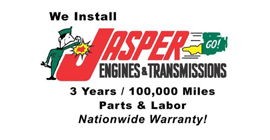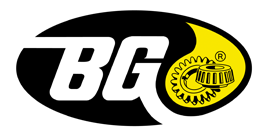281-589-8984 | 12510 Oxford Park Drive Houston, TX 77082
AUTONET TV
Archive for January 2022Give Your Engine Clean Fuel with a New Fuel Filter from Westside AutomotivePosted January 30, 2022 12:22 PMYour vehicle requires plenty of clean fuel to run. If your fuel contains contaminants, your fuel injectors will eventually become clogged up. When this happens, your vehicle engine may not get the proper amount of fuel at the correct pressure to run at peak performance. This hurts performance as you drive around the Houston area. It can also lead to the buildup of harmful deposits on valves and in the combustion chamber. Westside Automotive Weather Station on Wheels (Vehicle Sensor Maintenance)Posted January 23, 2022 7:08 AMYou probably never thought about it, but your vehicle is like a rolling weather station. It can check the outside temperature, let you know when the roads are slippery and help you deal with rain. And how it does all those things is pretty cool. First, just like any weather station, a vehicle has sensors that measure the driving and weather conditions you find yourself in. Some of those sensors can control computerized systems in your vehicle to react to the weather. It depends on whether you have a 2-wheel, 4-wheel or all-wheel drive vehicle how those sensors will respond. Let's start with temperature. Most vehicles now have a thermometer that measures the temperature outside. It's usually in the front, and likely will tell you on the instrument panel what the outside temperature measures. But a temperature sensor will also tell your vehicle's computers to turn on or off certain systems like the heating or air conditioning. If your ambient temperature sensor isn't working right, some symptoms are a malfunctioning automatic A/C or a temperature display that is way different than the app on your phone says it should be. Your vehicle will also have sensors that measure your speed at each wheel. They work with an onboard computer to measure slippage in any of the wheels so traction control and antilock brakes work correctly in case of slick roads. Your vehicle can measure something called longitudinal and latitudinal acceleration, and it uses a yaw sensor to do it. That helps it determine if you might be in an oversteering or understeering situation. It's important because it works with your vehicle's brakes to apply stopping power to keep you in control. A steering wheel sensor tells the vehicle's computers what the driver is doing with the wheel. It also can work with those wheel sensors to measure how slippery the roads are, whether it be due to a wet (rain) or granular (gravel or sand) surface. By sending different torque or braking to each wheel, it helps the driver maintain control. More and more vehicles now have a rain sensor that can turn on the wipers automatically when they measure precipitation on the windshield. So, you're driving your own weather station, and making sure all this data is coming in properly depends on how each component is working. Regular service and maintenance on these systems is important to make sure they can do their job. Your rolling weather station can't predict the weather, but it can sure help you deal with it, so help it do its job right.
Tracking True in TX: Wheel Alignment in HoustonPosted January 16, 2022 10:11 AMThe biggest issue for Houston area drivers is always safety. When your vehicle wheels are out of alignment, the vehicle will pull to one side, which could lead to an accident. When you're vehicle is out of alignment, you should have it taken care of right away at Westside Automotive in Houston. When undergoing an alignment service at Westside Automotive, your vehicle is put on an alignment rack where the tires, steering and suspension parts are checked for damage. Then the alignment is charted and checked against the factory settings. Obviously, a big jolt can seriously knock things out of alignment, but Houston area drivers also need to understand that a series of smaller ones can add up. That's why we recommend periodic alignment checks. If your vehicle owner's manual doesn't specify the interval, once a year might be appropriate. Or check with a service advisor at Westside Automotive in Houston. Westside Automotive
Start Me Up (Ignition Systems)Posted January 9, 2022 9:38 AMWhen you start up your gasoline engine car, you may not know that it's using the same ignition principles as it has for decades. You have spark plugs that require enough power so a spark can jump across a gap at its tip. Years ago, a vehicle's 12-volt system had to produce 15,000-25,000 volts to do that, so engineers came up with something called an ignition coil that bumps up the voltage. It also has to be done at just the right interval called timing. The first systems had a distributor, a mechanical device with a rotating disc that switched the power to the ignition coil on and off. That higher voltage then was sent to the spark plugs at the correct time interval. But the mechanical "points" had to be replaced and adjusted every 12,000 miles/20,000 kilometers. Engineers later replaced the switching mechanism with solid state ones, but they still needed replacement after 120,000 miles/200,000 kilometers. The next evolution came in the 80's when the distributor was replaced with a couple of sensors which talked to a computer. This "DIS" (distributor-less automotive ignition system) was a big advance. Plus, it didn't use just one ignition coil for all the cylinders. It had coil "packs" that each provided spark to two cylinders. That way, the voltage could be boosted even higher, to 30,000 volts, which helped engines be able to ignite a leaner fuel/air mixture. Recently have come even more improvements. Now instead of coil packs, there's a coil that's attached to each spark plug. No more spark plug wires means less maintenance. Plus, a stronger, hotter spark of 50,000 volts can make an engine more reliable, increase fuel economy and reduce emissions. No matter what ignition system your vehicle uses, your vehicle service facility has a staff of technicians trained to work on the latest technology. Make sure to have your vehicle maintained regularly so you can take full advantage of these modern engineering marvels. Westside Automotive Pinch Petroleum Pennies! (Fuel Saving Tips)Posted January 2, 2022 11:31 AMIf you saw a dollar bill on the ground, you'd pick it up, right? Well, whether you find that dollar on the ground or in savings at the gas pump, money is money, and here are some ways to hold on to more of it. Slowing down is the easiest way to save fuel, especially for every speed increase over 50 mph/80 k/hr. Tone down the speed, turn up the cash savings. Drive smoothly (not like a race car driver) and you'll also save money in fuel. Aggressive, fast-start, jerky-stop habits are just pulling the bucks out of your wallet about a third more than if you drove just a little more gently. Oh, and cruise control can help with that smooth, steady speed, so use it on the highway. Bonus! Are you hauling around a set of dumbbells or a box of books? That extra weight is costing you dough. Store them somewhere else. When's the last time you checked to see your tires were inflated properly? That's another money saver and makes your vehicle safer. An idle thought… don't idle any longer than you have to. If you will be idling for more than 30 seconds you'll save money by turning off the engine and re-starting it. More and more of the latest vehicles now do this automatically. Some like it cold. But air conditioning uses a lot of extra fuel. If you can live with the cabin at 72 on a hot day rather than turned down to arctic freeze levels, you'll save some cool cash. Turn off the A/C all together can save you from 5-20 percent The key to a fuel-efficient vehicle is keeping it well maintained. If your spark plugs are old, your belts frayed and your brake pads worn, you're just throwing away fuel. Try a few of these gas-saving suggestions and while you're at it, you'll be helping to reduce your carbon footprint that will help everyone on Planet Earth. Westside Automotive The Engine Gets a Boost (Turbocharged Engine Maintenance)Posted January 1, 2022 7:18 AMIf someone told you that your vehicle could have the same power but with a smaller engine, wouldn't that sound like great idea? Just think, a smaller engine would save you money at the gas station and you'd still get the same horsepower. The technology to do just that has been around for a long time. It's called a turbocharger. Race cars and other performance vehicles have been using turbochargers for years. It gives them a power boost without the need of a bigger engine, saving them fuel and pit stops. Automakers have offered turbo gasoline and diesel engines for years, but there were problems with durability. Plus drivers had to make some driving adjustments with the way turbos delivered power. Newer turbos, though, have been vastly improved, and manufacturers are including them in more models. For example, Jeep offers its 2019 Cherokee with a choice of two engines that each make about 270 horsepower. One is a 4-cylinder turbocharged engine and the other is a 6-cylinder conventional gasoline engine. The general rule of thumb is: the fewer the cylinders, the better the fuel economy. A turbocharged vehicle uses a turbine that is turned by exhaust gas. That compresses air that goes into the engine, which then allows it to use more fuel per second, increasing power. One advantage of a turbo is that it is only engaged when the driver demands more power from the engine by stepping on the throttle harder. One thing to remember, though, is that turbocharged engines have additional parts and are more complex. That means they can be more expensive to maintain. The upside? You'll likely save fuel. Like any complex machine, it's important that you maintain your turbo vehicle so it will give you more years of service. Westside Automotive technicians are trained to inspect and service the systems associated with a turbo engine. If you already drive a turbocharged vehicle, keep up your regular maintenance schedule to get the longest life and performance out of it. Because of the advantages these powertrains offer, turbo engines are definitely here to stay. Westside Automotive | ||
SearchArchiveDecember 2019 (15)January 2020 (5) February 2020 (4) March 2020 (5) April 2020 (4) May 2020 (5) June 2020 (4) July 2020 (4) August 2020 (5) September 2020 (4) October 2020 (4) November 2020 (5) December 2020 (4) January 2021 (6) February 2021 (4) March 2021 (4) April 2021 (4) May 2021 (5) June 2021 (4) July 2021 (4) August 2021 (5) September 2021 (4) October 2021 (5) November 2021 (4) December 2021 (4) January 2022 (6) February 2022 (4) March 2022 (4) April 2022 (4) May 2022 (5) June 2022 (4) July 2022 (5) August 2022 (4) September 2022 (4) October 2022 (5) November 2022 (4) December 2022 (4) January 2023 (5) February 2023 (4) March 2023 (4) April 2023 (5) May 2023 (4) June 2023 (4) July 2023 (5) August 2023 (4) September 2023 (4) October 2023 (5) November 2023 (4) December 2023 (5) January 2024 (5) February 2024 (4) March 2024 (5) April 2024 (3) | CategoriesSteering (7)Tires and Wheels (25)Windshield Wipers (3)Drive Train (3)Automotive News (5)Brakes (14)Timing Belt (5)Maintenance (23)Auto Safety (3)Safety (2)Fluids (5)Alternator (3)Older Vehicles (3)Trip Inspection (2)Battery (8)Fuel System (21)Service Standards (5)Service Intervals (4)What Customers Should Know (31)Dashboard (2)Transmission (6)Shocks & Struts (3)Cooling System (7)Oil Change (4)Diagnostics (3)Fuel Economy (6)Diesel Maintenance (1)Tires (2)Air Conditioning (4)Parts (2)Exhaust (3)Differential Service (1)Alignment (4)Serpentine Belt (2)Cabin Air Filter (4)Fuel Saving Tip: Slow Down (1)TPMS (2)Headlamps (2)Winter Tires (1)Safe Driving (1)Inspection (2)Keys to a long lasting vehicle (1)PCV Valve (1)Customer Detective Work (1)Check Engine Light (3)Winter Prep (1) | |
Testimonials
Kim H, 04/18/2024
Justin took great care us and was quick to resolve the issues. Thank you so much!












